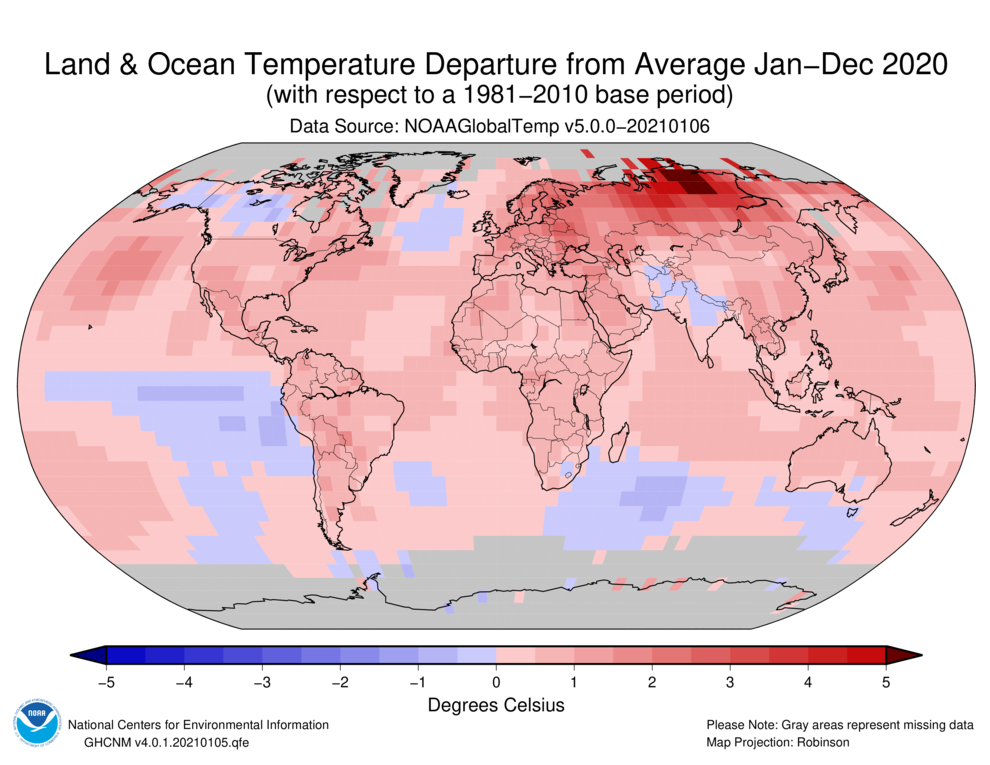Global temperatures in 2020 among highest on record: WMO
The heat came even as a global economic slowdown from the COVID-19 pandemic cut deeply into emissions from fossil fuels
2020 tied with 2016 as the world’s warmest on record, rounding off the hottest decade globally as the impacts of climate change intensified, the European Union’s Copernicus Earth observation service said.
The heat came even as a global economic slowdown from the COVID-19 pandemic cut deeply into emissions from fossil fuels, adding evidence that carbon dioxide concentrations already in the atmosphere have set the planet on a warming track.
Meanwhile, the fingerprints of climate change were also starkly visible in Europe, which experienced its hottest year on record in 2020, and in the Arctic and northern Siberia, which suffered extreme heatwaves and fires.

With governments due to meet for a climate summit in Glasgow in November, the latest data prompted renewed calls for faster action to slash greenhouse gas emissions in line with the 2015 Paris Agreement to avoid catastrophic climate change.
The Paris accord aims to cap the rise in temperatures to “well below” 2C and as close as possible to 1.5C to avoid the most devastating impacts of climate change.
The Arctic and northern Siberia continued to warm more quickly than the planet as a whole in 2020, with temperatures in parts of these regions averaging more than 6C above a 30-year average used as a baseline, Copernicus said.




